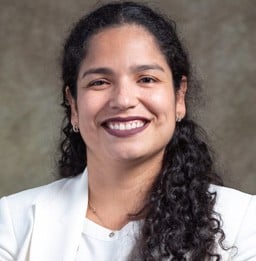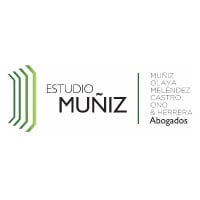

Legal head for new business and projects | Luz Del Sur



Laura Zuñiga Aleman
Legal head for new business and projects | Luz Del Sur
Can you tell us about your journey to becoming an in-house counsel? What inspired you to pursue a career in this field?
It is a process that has built over time. I started to feel limited as a lawyer in a law firm, although it is very interesting and instructive, it can be confined to one part of the company. You cannot see the interactions among the different departments and how legal solutions reflect corporate strategies. I felt the need to understand the financial, accounting, and sociological underpinnings that motivated the consultation. Thus, I took courses in finance and innovation, which led me to apply for an MBA instead of an LLM.
During this journey, the need to explore this rationale led me to becoming an in-house lawyer. I realised that understanding the motivations of both internal and external stakeholders was an important tool and improved my position as a negotiator and “problem solver.” For example, the main driver of the commercial areas is sales; however, they perceive legal as a bottleneck, and only seek us out when a problem arises. Understanding this helps me to identify the primary sources of risk in the commercial area and collaborate with them to find creative and practical solutions.
In this context, Luz del Sur offered me a position, initially as head of regulation. The combination of new skills has enabled me to transition to the role of head of new business and project development. Today, I confirm my initial feelings, and I find myself in a position where I can continue learning. I continue to practice law while expanding my knowledge, allowing me to provide solutions better oriented with the company’s objectives.
I know that I will not replace professionals from other careers, but I can understand them better, which facilitates simplified multidisciplinary work and allows for greater productivity and efficiency.
In your role as an in-house counsel, what are the main responsibilities and tasks you handle on a day-to-day basis?
As in-house counsel, I have two main responsibilities. Firstly, I provide legal advice and coordinate legal issues for the company’s new businesses and projects. This entails offering counsel at all stages of project implementation and company growth, conducting risk analysis, negotiating asset or share purchase agreements, overseeing the legal integration of new businesses with existing ones, and providing regulatory consultancy for group companies. Additionally, I am involved in the company’s tariff procedures, for which I am supported by my team.
Secondly, I oversee administrative issues, such as hiring external advisors and delegating my team’s responsibilities. Additionally, I coordinate with other areas across the company and plan the expenses of my legal department. This distinction is important compared to the work of a lawyer in a law firm; in this context, the development of soft skills is vital.
What are some of the key challenges you have faced as a rising star in-house counsel, and how have you overcome them?
I value the challenges I face as they all contribute to my professional growth. They fall into two categories, those related to legal and technical matters and those related to human resources management.
Regarding the first type, they are easier. It is a matter of reviewing literature and regulations and seeking opinions. The challenges are cognitive. Thus, the main challenge I have taken on as an in-house counsel is to become a “pro-business” lawyer who articulates the different positions and interests of the various departments to achieve the company’s objectives.
As for the latter, the best approach is to recognise the need to be an articulating element that must satisfy the needs of the different stakeholders. Active listening, non-judgement, assertive communication, high impact presentations or strategic behaviour are the keys. Only when someone understands the needs of others can they offer legally viable solutions that solve problems while minimising risks. To learn these skills I started an intense coaching process.
During this process, I have learned to (i) listen with humility to different positions and opinions, such as when engineers tell me their needs and objectives with certain companies, (ii) tolerate and understand the reasoning for the user areas’ rejections of my proposals, and (iii) engage in constructive discussions, not seeking to win the discussions but to find solutions that reconcile all the interests at hand.
It is not about imposing, but about negotiating solutions that seek to minimise risk, not just legal ones, and maximise outcomes for all. Solutions must be perceived as win-win for all. Having a coach was crucial for developing soft skills and navigating “cultural” adjustments.
What steps have you taken to enhance your professional development and expand your legal skill set?
I believe that expanding my knowledge of other areas and having the support of a coach were the key drivers in my development. Integrating aspects of other professions with my legal expertise, supported with highly developed soft skills, is the winning mixture to create synergistic relationships. Understanding the importance of team building, leadership styles, assertive communication, and active listening opens a new world of opportunities. In the end, it is about knowing our strengths and weaknesses, as well as those of each team member and department, to create synergies and seek help when necessary.